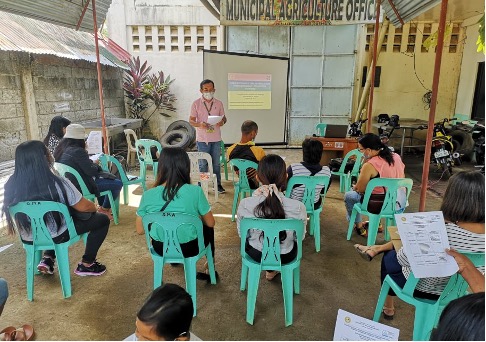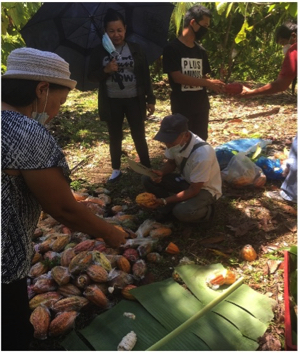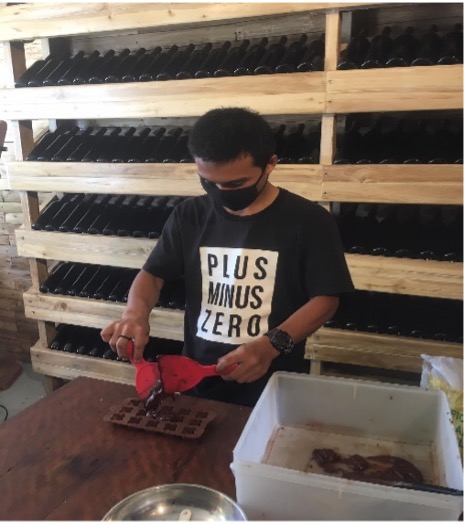 The country’s economic and agricultural sectors are negatively impacted by the COVID-19 pandemic with the restriction of human and product movement. This severely limits market activity, resulting in work displacement and loss of livelihood of Filipinos.
The country’s economic and agricultural sectors are negatively impacted by the COVID-19 pandemic with the restriction of human and product movement. This severely limits market activity, resulting in work displacement and loss of livelihood of Filipinos.
To resolve this, the University of Southern Mindanao (USM) in Kabacan, Cotabato conducted a series of trainings on tablea production to provide opportunities for sustainable livelihood to local cacao farmers, tablea makers, and displaced workers in Cotabato.
The USM project team led by Dr. Ardniel A. Baladjay identified three associations of cacao farmers (including tablea makers and displaced workers) in the cacao-growing municipalities of Antipas, Tulunan, and Aleosan in North Cotabato.
 The project team also designed and developed training modules on cacao pre-processing and post-harvesting; USM tablea production, packaging, labeling, and marketing; enterprise management; and operational and sustainability plan.
The project team also designed and developed training modules on cacao pre-processing and post-harvesting; USM tablea production, packaging, labeling, and marketing; enterprise management; and operational and sustainability plan.
Method demonstration was employed to ensure that the science and technology interventions will be adopted and utilized by the cacao tablea makers. As part of the training design, pre and post-test or assessment was also administered to gauge the knowledge level of each farmer-beneficiaries.
At present, the project team was able to train 11 farmer beneficiaries from Aleosan Cacao Farmers Association (ACFA), 12 farmer beneficiaries from Antipas Cacao Growers Association (ACGA), and 11 farmer beneficiaries from Tulunan Cacao Growers Association (TCGA).
 These activities are part of the project, “Tablea: Pangkabuhayan Para sa Kotabateňong Pamayanan: Community-Based Tablea Production for Sustainable Livelihood in Cotabato.” The project is funded and monitored by the Philippine Council for Agriculture, Aquatic and Natural Resources Research and Development of the Department of Science and Technology (DOST-PCAARRD).
These activities are part of the project, “Tablea: Pangkabuhayan Para sa Kotabateňong Pamayanan: Community-Based Tablea Production for Sustainable Livelihood in Cotabato.” The project is funded and monitored by the Philippine Council for Agriculture, Aquatic and Natural Resources Research and Development of the Department of Science and Technology (DOST-PCAARRD).
This project is part of the Good Agri-Aqua Livelihood Initiatives towards National Goals (GALING) PCAARRD Kontra COVID-19 program. This is the Council’s quick response to the government-led efforts against the COVID-19 pandemic in accordance with the Bayanihan to Heal as One Act.
The project will continue until March 2022 and is expected to support more local cacao farmers in Cotabato.
